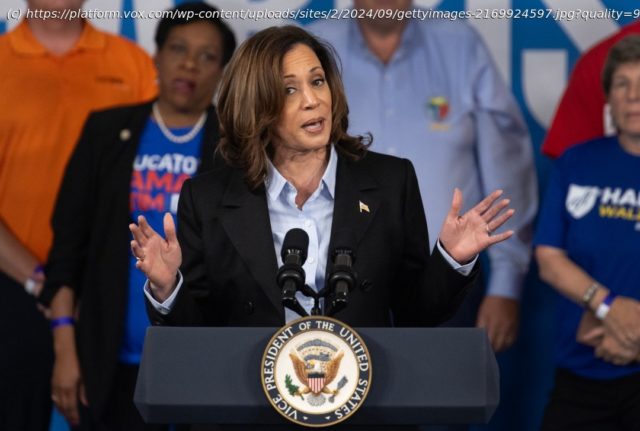Both candidates say they’ll cut taxes — but for whom?
As the Kamala Harris and Donald Trump campaigns sprint to the November election, both candidates are leaning heavily into new tax proposals designed to appeal to their bases and win over undecided voters.
While the two candidates are both pitching populist taxation proposals, their wildly divergent tax plans demonstrate their starkly different viewpoints on how to encourage economic growth and prosperity in a time when many Americans worry about being able to meet such basic needs as buying food and accessing housing.
Harris is proposing policies like raising taxes on corporations and creating new tax credits, while Trump promises to institute new tariffs and to cut taxes on certain businesses. There’s not a lot the two agree on, other than a proposal to eliminate federal taxes on tips.
As president, both candidates would struggle to make their promised changes unilaterally as taxation is controlled by Congress, not the executive branch. Neither party seems on track to make the type of huge House or Senate gains a president would need to ram their agenda through Congress, and it’s possible control continues to be split between parties, a recipe for gridlock.
That makes these plans more about demonstrating an economic philosophy to voters than anything else. On economic concerns, Trump has led both his Democratic challengers in the polls, and that dominance has proven hard for Democrats to shake; according to a New York Times/Siena College poll conducted last week, Trump leads Harris on the economy by 13 percentage points.Harris is mostly on Biden’s charted path
As the current vice president, Harris is balancing support for the Biden administration’s policies while differentiating herself where it makes sense politically — essentially trying to chart a path that appeals to progressive Democrats calling for higher taxes, wealthy Democratic donors worried about higher taxes, and everyone in between.
So far, Harris has said she wants to:
Democrats have been agitating for some of the above changes for years. Biden, for instance, proposed raising the capital gains tax — basically, a tax on profit made by selling something, that increases in value over time, like stocks or gold — to 39.6 percent. The current rate is 20 percent, meaning Harris’s proposed rate would be an eight percentage point increase. Harris’s proposal comes with some limitations: It would exempt income from stock dividend payouts and would only apply to taxpayers with $1 million or more in income per year.
Harris’s proposed corporate tax rate — the amount corporate entities have to pay on their income — would be a 7 percentage point increase from the current federal rate of 21 percent.
Home
United States
USA — mix Kamala Harris’s and Donald Trump’s wildly different tax plans, explained






